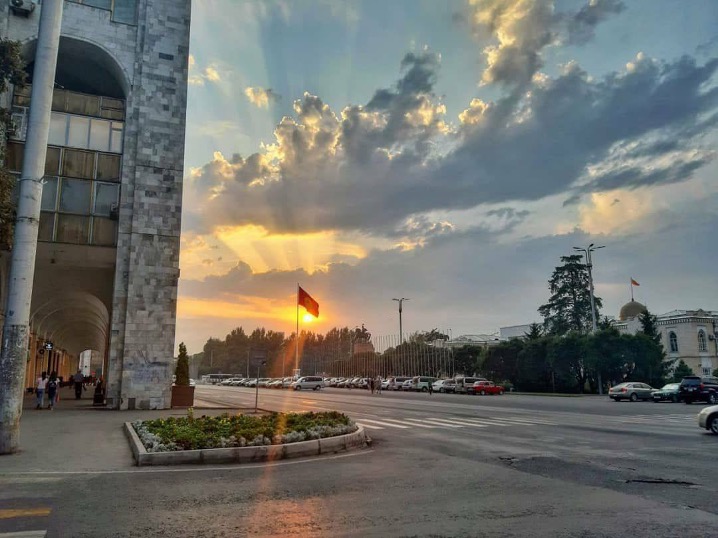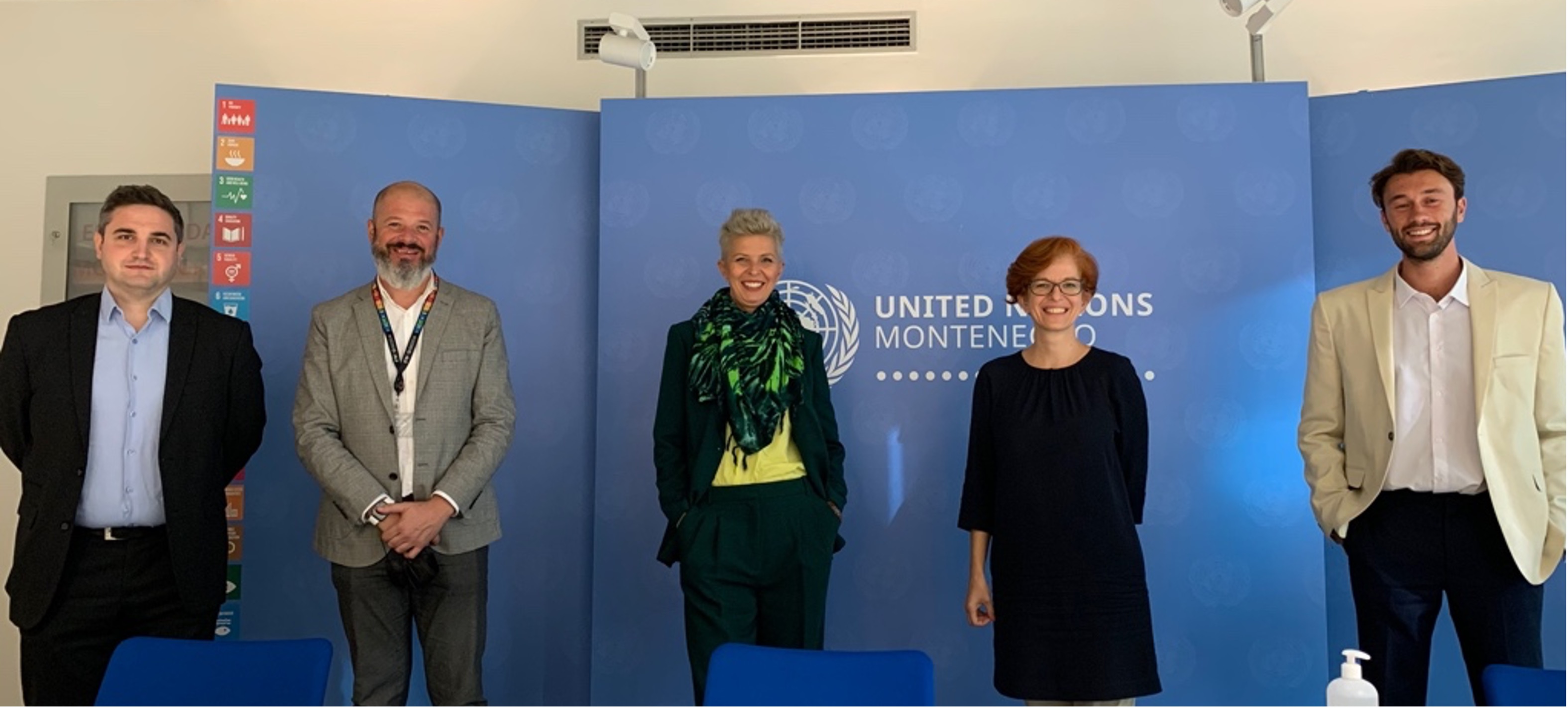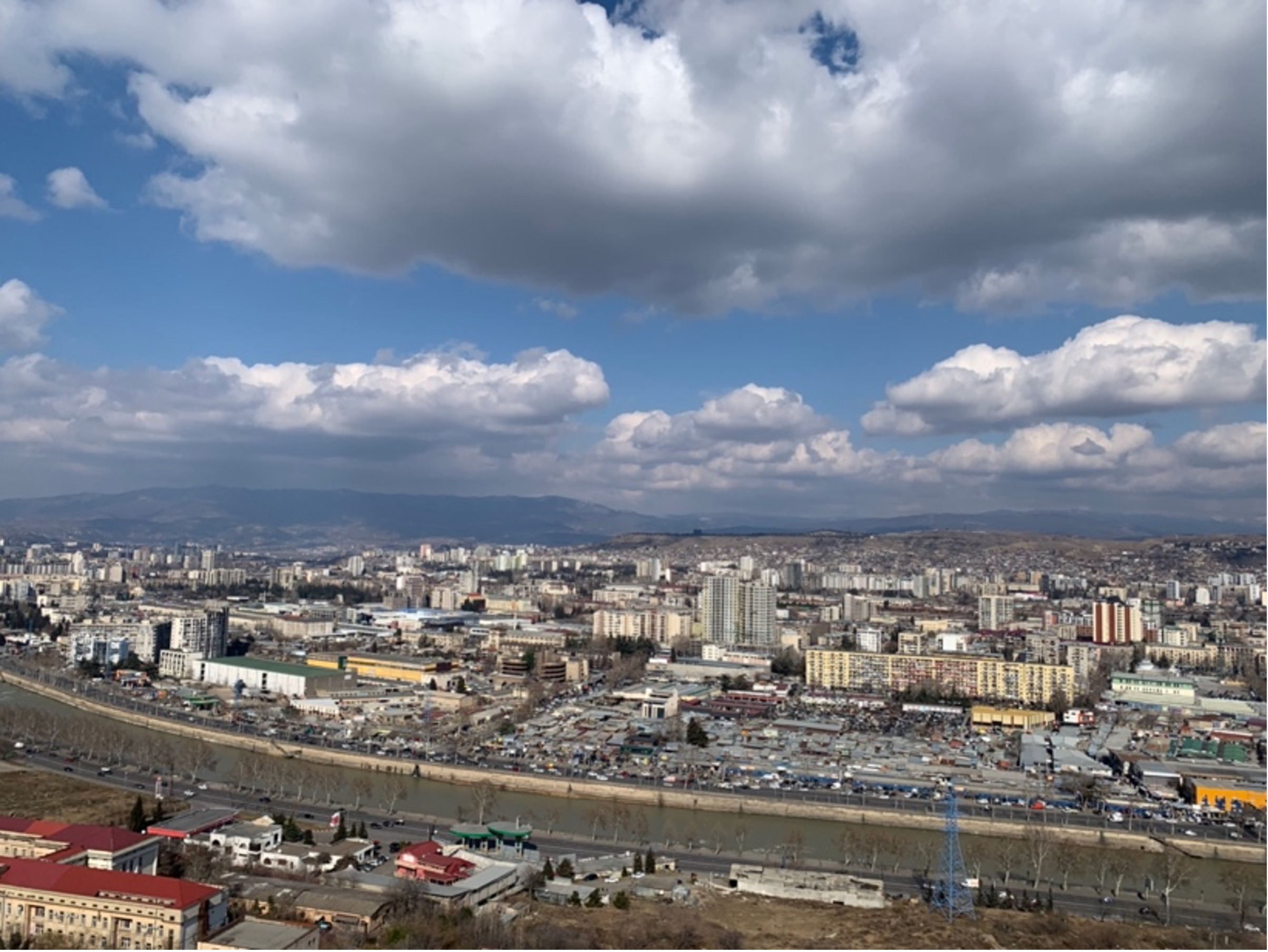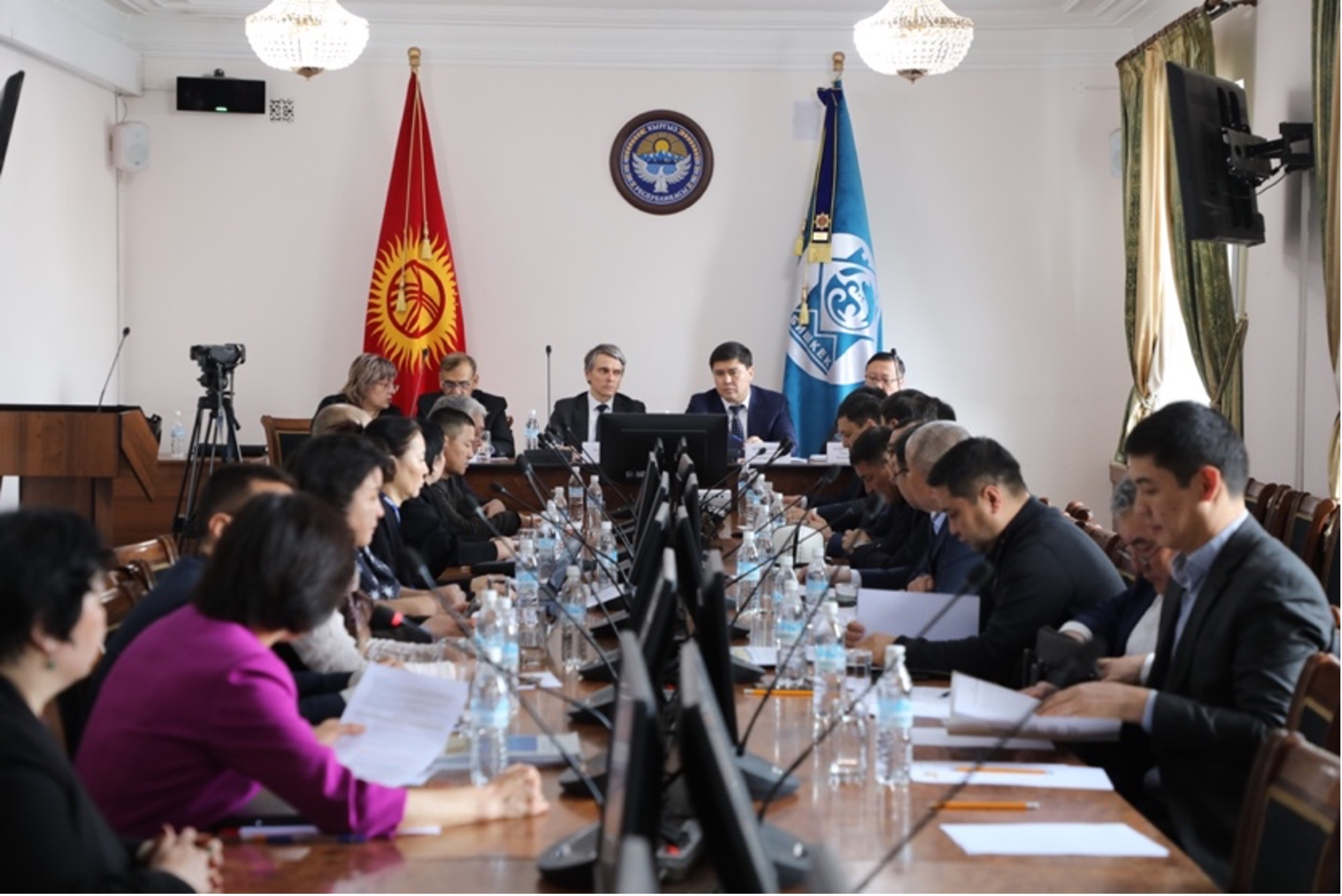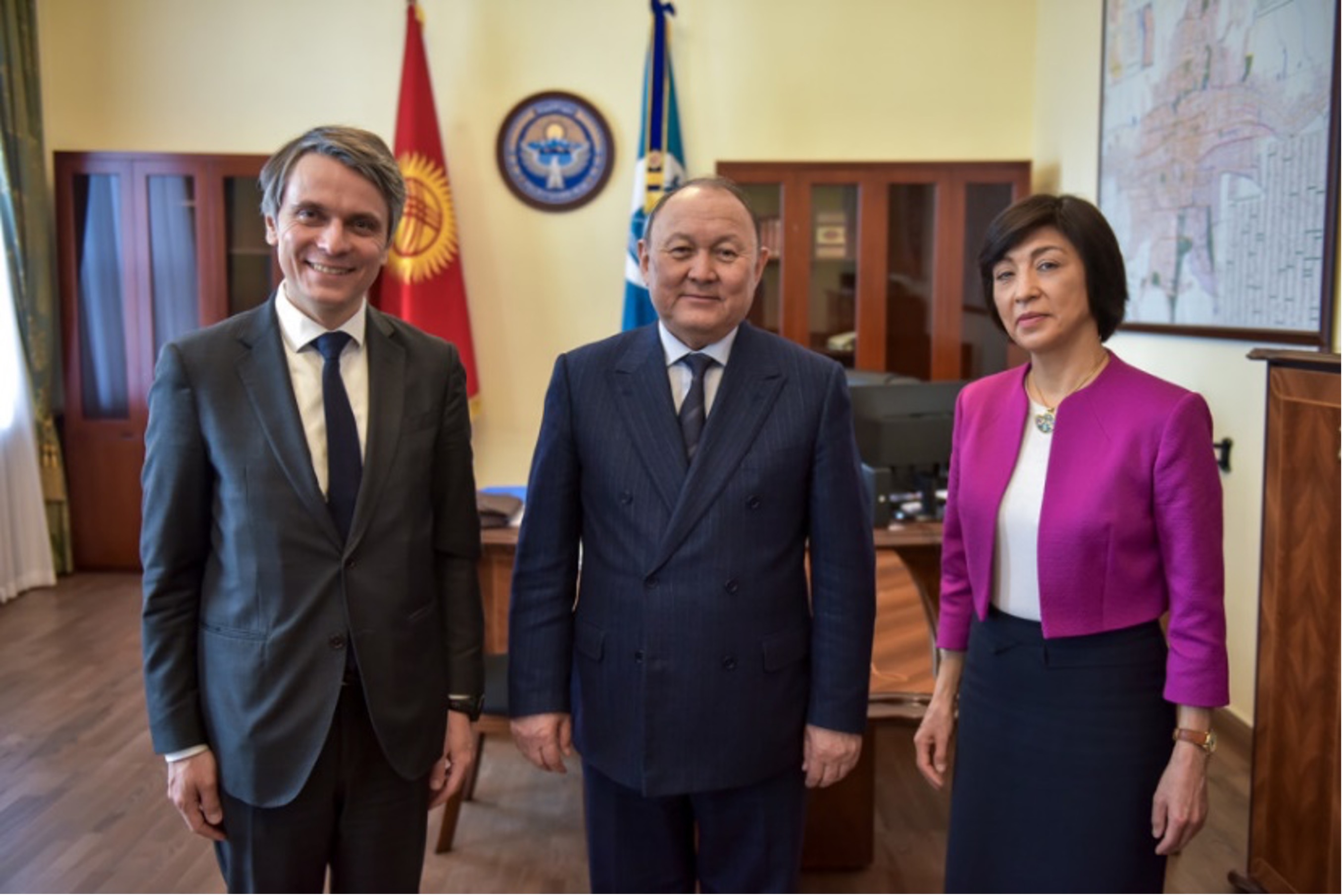 Promoting Local Governments Capacities to Transition Towards People-centred, Smart, Sustainable Cities
Supporting cities in economies in transition in the national quest to be people-centred, smart and sustainable
Promoting Local Governments Capacities to Transition Towards People-centred, Smart, Sustainable Cities
Supporting cities in economies in transition in the national quest to be people-centred, smart and sustainable

Challenges
The five cities engaged in the cooperation are Bishkek, Kyrgyzstan; Nur-Sultan, Kazakhstan; Tbilisi, Georgia; Grodno, Belarus; and Podgorica, Montenegro. They all face similar challenges that include an insufficient capacity of city governments to develop evidence-based policies for smart sustainable development at the local level, and an insufficient capacity to facilitate funding for developing their urban infrastructure projects. These challenges prevent cities from achieving the SDGs at the local level, as they lack the local capacity to develop evidence-based policies and to facilitate funding for infrastructure projects.
Towards a Solution
The UNDA 12th tranche project on innovative financing for sustainable smart cities works with governments in four different UNECE subregions – Eastern Europe (Belarus), South-Eastern Europe (Montenegro), Caucasus (Georgia) and Central Asia (Kazakhstan and Kyrgyzstan) – to support the transitions of beneficiary countries towards smart and sustainable cities. The goal is to promote implementation of Goal 11 and other urban-related SDGs of the 2030 Agenda for Sustainable Development.
As part of the project, UNECE works to improve local capacity to develop and implement sustainable urban policies through: (i) evaluation of cities’ performance and the drafting analytical smart sustainable cities profiles; (ii) capacity-building activities to promote evidence-based policies and vertical and horizontal coordination among different government agencies, with the participation of the cities’ public; (iii) policy to support city governments in acquiring funding to support smart sustainable cities projects.
The project supports the development of the smart sustainable cities profiles through the application of the UNECE/ITU Key Performance Indicators for Smart Sustainable Cities (KPIs for SSC), a United Nations standard developed by UNECE and ITU in 2015. The KPIs for SSC consist of 91 indicators at the intersection of three dimensions of sustainability (economy, environment, and society and culture) and information and communication technologies. The cities performance is evaluated against the indicators;based on the evaluation, cities profiles are developed which include concrete policy recommendations to the cities, including for concrete urban infrastructure projects. Following the development of the cities profiles, UNECE organizes capacity building activities for the local governments to promote their capacity on evidence-based urban policies, including on urban data collection, analysis and use of the data in the decision-making.
The project also supports cities with policy advice and capacity building for raising external funding to support urban infrastructure projects. For instance, in Bishkek, Kyrgyzstan, based recommendations of the city smart sustainable city profile, a key priority for funding was identified: improvement of the informal settlements which are part of the city. Following that, UNECE has conducted a survey to map the informal settlements and then partnered with the Cities Development Initiative for Asia (CDIA) to design a pre-feasibility study aimed at the integrated upgrading of five informal settlements and for job creation. As the CDIA is working on the pre-feasibility study during 2022, UNECE is engaged to mobilize partnerships with international financial institutions capable to finance the upgrading of informal settlements beyond the pre-feasibility study phase.
In Podgorica, Montenegro, UNECE supported the preparation of a report on “Formalizing the Informal: Challenges and Opportunities of Informal Settlements in South-East Europe” which contains an analysis of the challenges of informal settlements in the city. A concrete policy package, an investment programme or an action plan at city level will be developed by the local government with the support of UNECE to promote smart sustainable urban development.
In Tbilisi, Georgia, in June 2019, UNECE organized a joint training workshop with the Government of Tbilisi, Georgia – namely, the Ministry of Regional Development and Infrastructure, the Ministry of Economy and Sustainable Development and the Georgian Land Registry – on evidence-based housing and urban policies and sustainable infrastructure. As a result, the partners have agreed to develop a joint initiative on urban planning of housing and infrastructure in cities.
The project uses a participatory approach. Through local workshops with the engagement of local stakeholders and in cooperation with the relevant central government institutions, the project is creating a vision for smart sustainable urban development in the five pilot cities.
The project supports innovative approaches and digital transformation in countries with economies in transition, through the growing use of e-government, e-governance, e-participation and e-inclusion that has been driven by digitalization.
To ensure project sustainability, UNECE engages regularly with the local authorities through weekly meetings with city governments thereby ensuring continuity, knowledge transfer and sustainable capacity-building.
Contact Information
Countries involved
Supported by
Implementing Entities
Project Status
Project Period
URL of the practice
Primary SDG
Primary SDG Targets
Secondary SDGs
Secondary SDG Targets
Similar Solutions
| NAME OF SOLUTION | Countries | SDG | Project Status | |
|---|---|---|---|---|
Adapting Digital Payment to Initiate Rapid Response During Pandemic Bangladesh government disbursed cash aid to 5 million most vulnerable families through mobile financial service in order to minimize the financial impact during COVID 19 within the shortest period of time. |
Belarus, Georgia, Kazakhstan, Kyrgyzstan, Montenegro | 03 - Good Health and Well-being 05 - Gender Equality | Completed | View Details |
Addressing Racial and Ethnicity-based Discrimination and Strengthening the Protection of Rural Afro-descendants UNFPA supports data disaggregation as a tool to fight racism and ethnic discrimination |
Belarus, Georgia, Kazakhstan, Kyrgyzstan, Montenegro | 01 - No Poverty 02 - Zero Hunger 03 - Good Health and Well-being 05 - Gender Equality 06 - Clean Water and Sanitation 11 - Sustainable Cities and Communities 16 - Peace and Justice Strong Institutions | Ongoing | View Details |
Addressing the Transboundary Dimensions of the 2030 Agenda through Regional Economic Cooperation and Integration in Asia and the Pacific Promoting co-deployment of ICT and transport infrastructure corridors in Central Asia region |
Belarus, Georgia, Kazakhstan, Kyrgyzstan, Montenegro | 09 - Industry, Innovation and Infrastructure 13 - Climate Action 17 - Partnerships for the Goals | Completed | View Details |
Agricultural Development and Enhanced Food Security in the MENA Region and Central Asia |
Belarus, Georgia, Kazakhstan, Kyrgyzstan, Montenegro | 01 - No Poverty | Ongoing | View Details |
An Inclusive Approach to Digital Learning in Lao People’s Democratic Republic Introducing digital learning in Lao People's Democratic Republic to help bridge learning gaps exacerbated by the COVID-19 pandemic |
Belarus, Georgia, Kazakhstan, Kyrgyzstan, Montenegro | 03 - Good Health and Well-being 13 - Climate Action | Ongoing | View Details |
